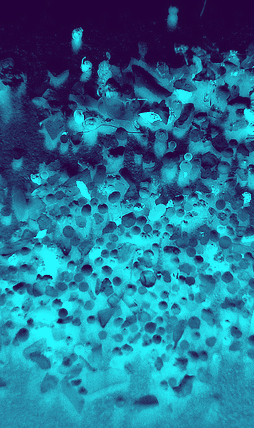Small beads bring big worries
 New South Wales may fight the use of tiny plastic particles common in beauty products, after a study found widespread pollution from ‘microplastics’ in Sydney Harbour.
New South Wales may fight the use of tiny plastic particles common in beauty products, after a study found widespread pollution from ‘microplastics’ in Sydney Harbour.
A recent study by the Sydney Institute of Marine Science discovered up to 60 bits of microplastic per 100 milligrams of sediment in Sydney Harbour.
The researchers said their small size – most fragments are less than five millimetres long – is a big part of the risk.
Tiny fragments of just about any petrochemical products - fleecy jackets, plastic bags or bottles, cosmetics, toothpaste and shampoos containing “microbeads” – can enter the ecosystem, be taken up by worms and other small organisms and eventually make their way to fish, birds and humans.
NSW Environment Minister Robert Stokes made some pledges to fight back against the growing tide of miniscule menaces, speaking at the launch of the Sydney Harbour Research Project.
Mr Stokes said he would look to start a voluntary phase-out of microplastics by the industries that use them, but would not back a total ban, as has been imposed in the US state of Illinois.
He said any efforts would be backed by a working party to discuss the issue with industry.
Follow-up testing across the Harbour would be conducted if deemed necessary, Stokes said.
The Environment Minister says he will work with colleagues to draw up a proposal to phase out microplastics from cosmetics.








 Print
Print